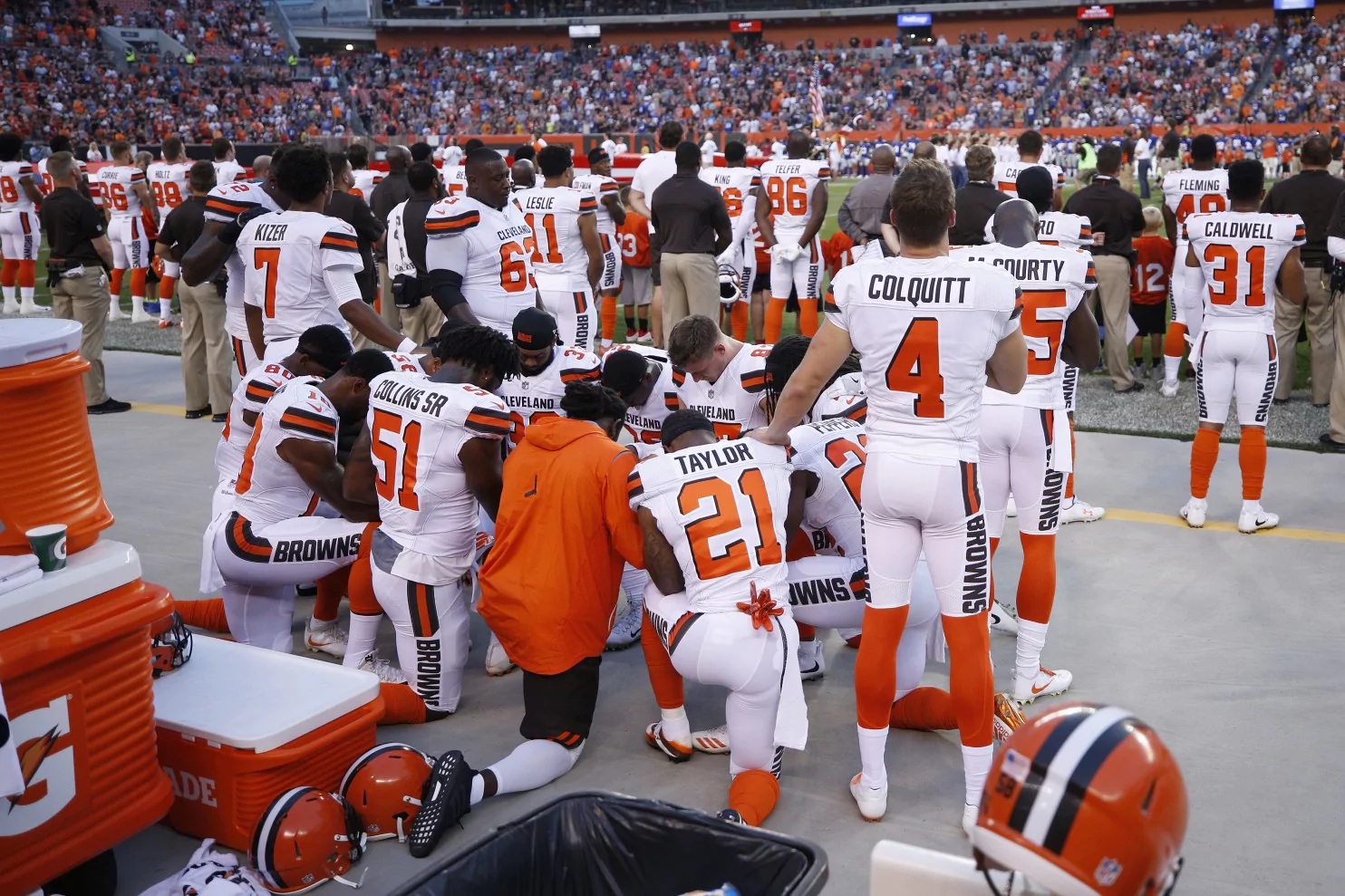How the youngest team in the NFL staged its largest national anthem protest

CLEVELAND — A group of players was gathered inside the Cleveland Browns locker room Sunday when Jason McCourty walked out of the shower. The defensive back’s curiosity drew him over and, eventually, into the conversation.
What transpired was the beginning of the largest demonstration by an NFL team during the national anthem since the protests began when Colin Kaepernick took a knee last year.
“I was like, ‘What’s up? What’s going on?’” McCourty said. “And that’s how it started. A group of guys sitting there talking about it.”
Twelve Browns players knelt in a circle and prayed while five others, including McCourty, stood with a hand resting on a kneeling player’s shoulder before Monday night’s preseason contest against the New York Giants. Seventeen players in all participated in the demonstration to call attention to racial injustice in the United States.
The Browns’ protest stood in contrast to the scene on many sidelines this preseason, where anthem displays have been confined to a modest group of players on just a handful of teams. Although many more players share a simmering unhappiness with team owners about Kaepernick’s continued unemployment, and about issues such as police brutality and mistreatment of blacks and minorities, they’ve chosen to remain largely silent.
So why the Browns? As the ripples of a protest movement started by Kaepernick last season spread, the Browns — the youngest team in the NFL — had remained fairly quiet. But Cleveland’s front office structure, coupled with the city’s and the franchise’s history, suggest a far different question: Why not the Browns?
“That just kind of happened organically, and it came to fruition on game day,” McCourty said in an interview Wednesday.
No single player will take credit for the protest. McCourty said ideas bounced back-and-forth during the conversation as they considered the best way to convey a message, especially in the aftermath of the events in Charlottesville earlier this month, when white nationalists, neo-Nazis and Ku Klux Klan members held a violent rally over the removal of Confederate General Robert E. Lee’s statue.
They agreed that prayer would be the focal point of their demonstration.
“We wanted to take the time to pray for our country,” said tight end Seth DeValve, who became the first white NFL player to kneel during the anthem. “It wasn’t something that was meant to be disrespectful to anything or anybody. It was something that was meant to take time out to pray for the status of our country.”
Before they acted, they spoke to Browns Coach Hue Jackson. He supported their right to use their voice, as did the entire organization. The Browns are the only NFL team with a black football operations executive, Sashi Brown, and black head coach. There had been an assumption that there was rift between the players and Jackson following his comments immediately after the events in Charlottesville. “I would hope that we don’t have those issues,” he said on Aug. 14, when asked about players’ national anthem protests.
Jackson clarified his remark two days later with a statement he carried in his back pocket to resort to if he was asked about the issue again. He said players should “embrace the platform they have as NFL players to improve our community and use their platform in a positive, thoughtful and responsible manner.” Still, Jackson received plenty of criticism for his initial comments.
“I’m still surprised that that is what still stays out there, because I had never talked to our football team about it; we never had a conversation,” said Jackson, who acknowledged that he…

Comments